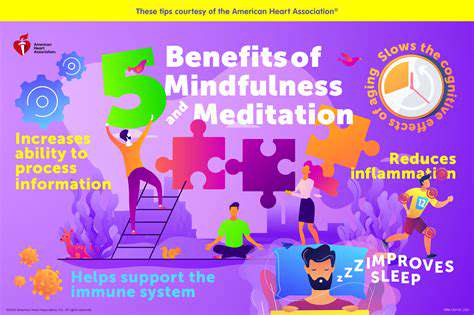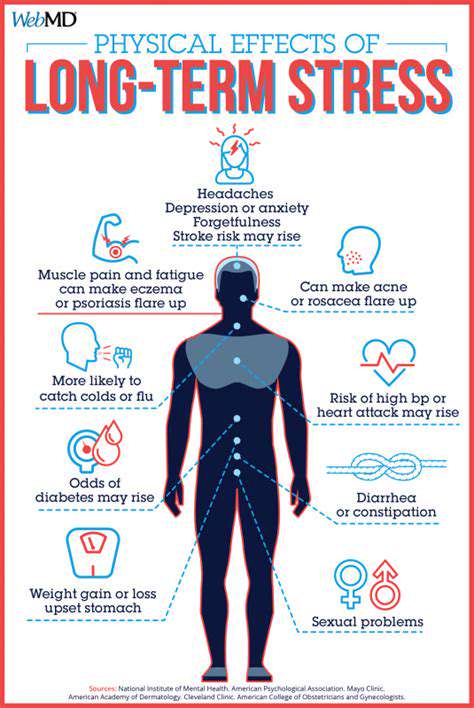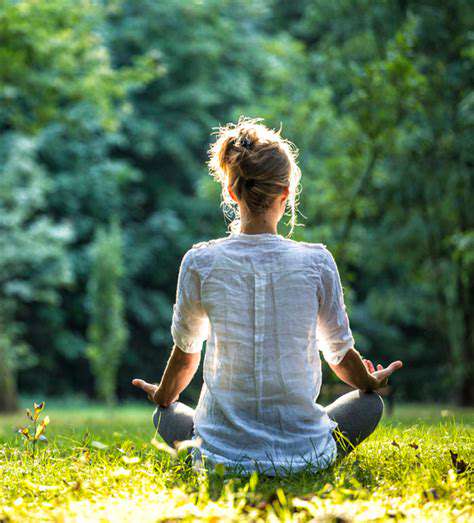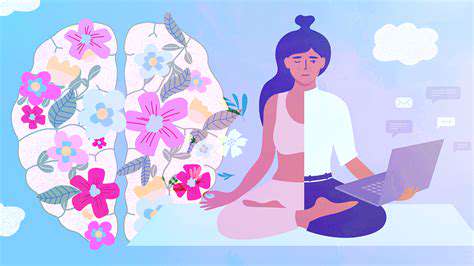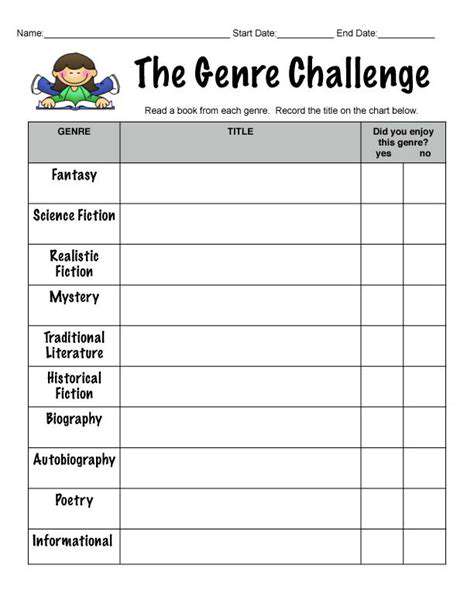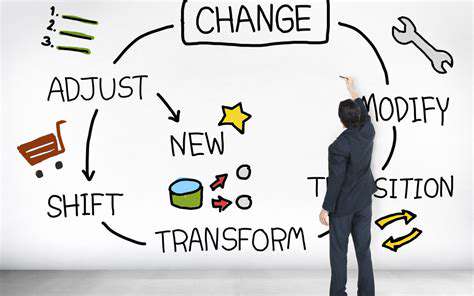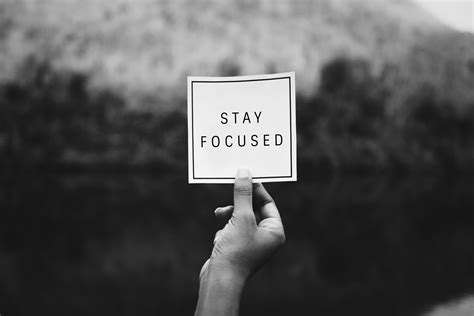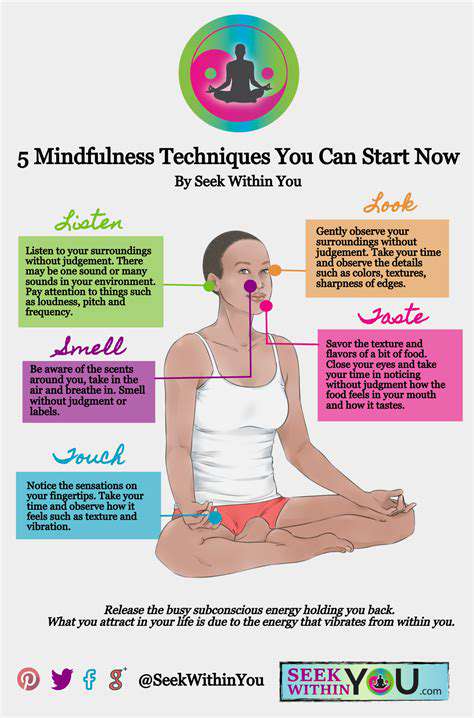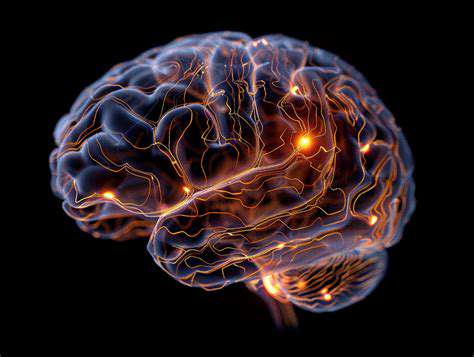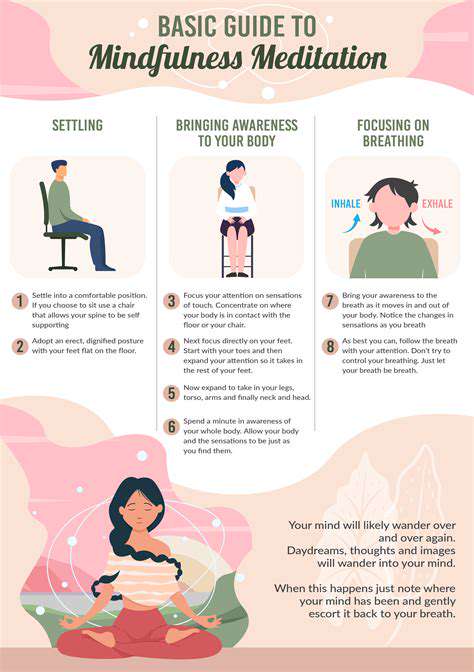How Mindfulness Practice Can Significantly Reduce Stress Levels
The Science Behind Mindfulness and Stress Reduction
The Neurobiological Effects of Mindfulness
Research indicates that mindfulness practices, such as meditation and deep breathing, can lead to significant changes in brain structure and function. Studies using neuroimaging have shown that mindfulness can reduce activity in the amygdala, the brain region responsible for processing stress and fear. This reduction can translate to lower stress levels and improved emotional regulation.
Additionally, mindfulness increases the thickness of the prefrontal cortex, which is associated with higher-order functions such as decision-making and emotional control. By enhancing the brain's capacity to manage stress responses, mindfulness equips individuals with the tools necessary to navigate challenges more effectively.
Practical Mindfulness Techniques for Everyday Stress
Incorporating mindfulness into daily routines doesn't require extensive time commitments. Simple practices, such as mindful breathing or body scans, can be done in just a few minutes and can help ground an individual in the present moment. Focusing on the breath, for instance, can serve as an anchor during moments of stress, fostering a sense of calm and clarity.
Another effective technique is mindful walking. This involves paying close attention to the sensations of walking—feeling the ground beneath your feet and the rhythm of your steps. By engaging fully in the experience, individuals can interrupt cycles of stress and cultivate a more peaceful mindset throughout their day.
Practicing Mindfulness in Daily Life
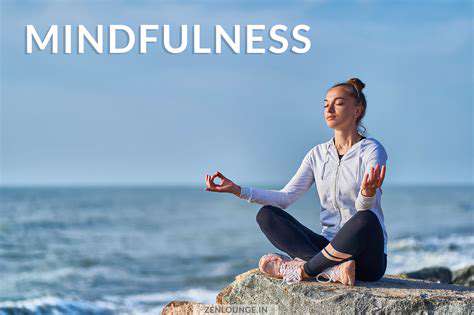
Understanding Mindfulness
Mindfulness is the act of being fully present in the moment, aware of your thoughts and feelings without judgment. It allows individuals to observe their internal experiences without getting caught up in them. By practicing mindfulness, one enhances their awareness of the present, which can lead to a decrease in feelings of stress and anxiety.
Research has shown that regular mindfulness practice can lead to significant reductions in stress levels. Such practices can range from meditation and deep-breathing exercises to mindful eating and walking. Engaging in these practices helps cultivate a sense of calm and clarity, even in high-pressure situations.
While mindfulness is often associated with meditation, it can also be integrated into daily activities. For instance, being mindful while washing dishes or commuting can turn mundane tasks into opportunities for stress relief. Recognizing the importance of mindfulness in everyday life can make a profound difference in overall well-being.
People can start their mindfulness journey by dedicating just a few minutes each day to focus on their breath or surroundings. Over time, these short sessions can lead to greater emotional resilience and improved stress management. The key is consistency, allowing mindfulness to become a natural part of life.
Techniques for Practicing Mindfulness
There are several techniques that individuals can employ to practice mindfulness effectively. One popular method is guided meditation, where practitioners listen to a recording that leads them through the process. This can be particularly helpful for beginners who may find it challenging to meditate on their own.
Another effective technique is deep-breathing exercises, which help to center an individual in the present moment. By taking deep, slow breaths, one can activate the body’s relaxation response, which counteracts stress. These breathing exercises can be done anywhere, making them a flexible tool for stress reduction.
Mindful journaling is also a valuable technique; writing down thoughts and feelings can help individuals process emotions without becoming overwhelmed. This practice invites introspection and promotes emotional clarity. By expressing oneself through writing, it becomes easier to let go of stressors.
Lastly, mindful movement practices like yoga or tai chi allow individuals to connect their physical movements with their breath, fostering a sense of awareness and grounding. These practices engage both body and mind, creating a holistic approach to stress relief.
Benefits of Mindfulness for Stress Reduction
Engaging in mindfulness practices can lead to numerous benefits that greatly enhance mental health. One major advantage is the reduction of cortisol levels, a primary stress hormone. Lower cortisol levels can improve overall health, leading to a more balanced emotional state.
Mindfulness also enhances emotional regulation, allowing individuals to respond to stressors in a more measured and calm manner. This empowerment results in better decision-making and less impulsive reactions during challenging situations. As a result, individuals can navigate life’s demands with greater ease.
Moreover, mindfulness practices promote improved focus and attention, enabling individuals to concentrate better on their tasks. With less mental clutter, there’s more space for productivity and creativity. This heightened focus can lead to fulfilling work experiences and reduced work-related stress.
Lastly, regular mindfulness practice can strengthen social connections by fostering empathy and understanding towards others. Improved interpersonal relationships can serve as a buffer against stress, enabling support during difficult times. Therefore, the ripple effects of mindfulness extend beyond the individual, positively impacting social dynamics as well.
Integrating Mindfulness into a Busy Lifestyle
Incorporating mindfulness into a busy lifestyle may seem challenging, but it is entirely possible. One effective strategy is to take mini mindfulness breaks throughout the day. Just a few moments of focused breathing or awareness can provide instant relief from accumulated stress.
Setting reminders or alarms on your phone can encourage mindful moments, signaling when to pause and refocus. Additionally, creating a mindfulness ritual, such as morning meditation or evening gratitude reflections, embeds these practices into daily routines. Establishing routines is crucial for making mindfulness a consistent part of life.
Being mindful during everyday activities also offers opportunities for practice without dedicating extra time. For example, focusing on the taste and texture of food while eating can transform meals into mindfulness sessions. Mindfulness can easily coexist with busy schedules, enriching otherwise hectic days.
Lastly, participating in mindfulness groups or classes can foster motivation and community support. Group settings can enhance accountability and provide a sense of shared experience. Finding resources or local workshops can spark inspiration to incorporate mindfulness more fully into one’s life.
The Long-Term Benefits of Mindfulness
The Impact on Mental Health
Mindfulness practice has been shown to have a profound impact on mental health by reducing anxiety and depression. By focusing on the present moment, individuals can detach from negative thought patterns and emotional distress. This shift in perspective often leads to improved emotional regulation, allowing practitioners to respond to stressors with greater calmness and clarity.
Regular engagement in mindfulness practices can lead to a decrease in rumination, which is the persistent focus on distressing thoughts that can exacerbate feelings of anxiety and sadness. As a result, individuals often experience a more stable and positive mood over time, fostering a healthier mental outlook.
Enhancing Physical Well-being
The benefits of mindfulness extend beyond mental health; they also contribute to improved physical well-being. Studies have shown that mindfulness can lower levels of the stress hormone cortisol, which is often linked to a range of health issues, including cardiovascular disease. By mitigating these stress responses, mindfulness can help support overall health and longevity.
Furthermore, practitioners often report better sleep quality and more effective coping mechanisms when dealing with pain or chronic illnesses. The incorporation of mindfulness into daily routines encourages healthier lifestyle choices, such as regular exercise and balanced nutrition, thereby enhancing physical vitality and resilience against stress-related conditions.
